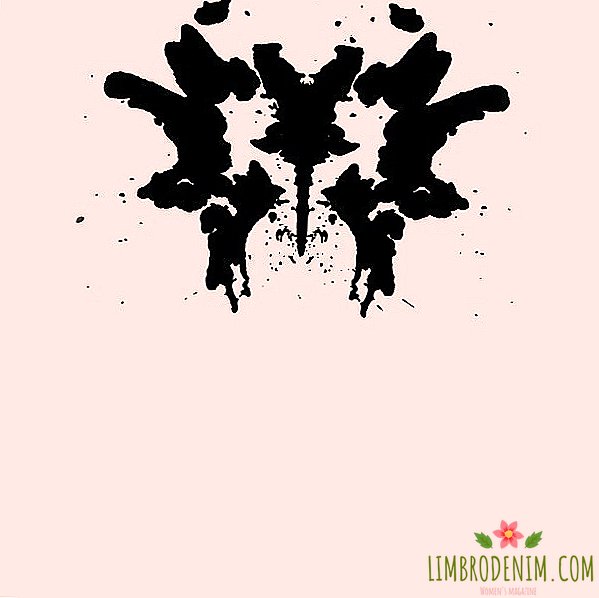Question to expert: Does season affect mental health?

ALEXANDRA SAVINA
RESPONSES TO THE MAJORITY OF US QUESTIONS we used to search online. In the new series of materials we ask such questions: burning, unexpected or widespread - to professionals in various fields.

Since childhood, we have become accustomed to hearing about the "spring" and "autumn exacerbations" - the supposedly inevitable deterioration of the condition of those who are faced with mental difficulties. It seems that in these phrases there is more stigma than truth, because in such a context, a person with a mental disorder is certainly considered “dangerous to society”. Nevertheless, the question whether the time of year can affect us remains open: is autumn really a time of depression, or is it a myth? We learned from the experts.
Dmitry Frolov
psychiatrist, psychotherapist, co-founder of the REBT Center, author of the book "Psychotherapy and what it eats"
 The expression "spring exacerbation" is not used in the medical literature: in it, perhaps, the influence of the season on mental disorders is exaggerated. Seasonality is just one of many factors that affect well-being.
The expression "spring exacerbation" is not used in the medical literature: in it, perhaps, the influence of the season on mental disorders is exaggerated. Seasonality is just one of many factors that affect well-being.
However, there is evidence of seasonality disorders. For example, suicides occur more frequently in the summer, perhaps because of the heat. The manic phase of bipolar disorder often occurs in spring and summer, mixed episodes of bipolar disorder - in late summer and winter. Symptoms of schizophrenia occur more often in the summer. Autumn and winter can increase anxiety disorders and depression. Cognitive functions in older people are better in late summer and early autumn, but worse in late winter and early spring. Much depends on the country and climate features: humidity, temperature, height above sea level, as well as gender - there is evidence that seasonality affects women more strongly.
The reasons for seasonality are difficult to establish reliably. It is likely that the duration of a sunny day, changes in nutrition, physical activity, excessively low or high temperatures affect biochemical processes in the brain and the ability of people to cope with stress. For a psychiatrist and his patient, it is rather important to keep in mind that any change in the season is a factor in the possible risk of deterioration.
Ilya Skvortsov
Clinical Psychologist, Member of the Association for Cognitive-Behavioral Psychotherapy and the Association for Contextual Behavioral Science
 Many mental health professionals point out that people are not uniformly seeking help throughout the year. There are studies that confirm the connection between the weather and the psychological state of a person. There is even such a term - seasonal affective disorder, which is manifested in the fact that a person's mood drops significantly in the autumn-winter period. Roughly speaking, this is an "autumn depression." There is evidence of seasonality in bipolar disorder: in spring and summer the probability of reaching the manic or hypomanic phase is higher. There is evidence that people with schizophrenia feel worse during periods of short light days.
Many mental health professionals point out that people are not uniformly seeking help throughout the year. There are studies that confirm the connection between the weather and the psychological state of a person. There is even such a term - seasonal affective disorder, which is manifested in the fact that a person's mood drops significantly in the autumn-winter period. Roughly speaking, this is an "autumn depression." There is evidence of seasonality in bipolar disorder: in spring and summer the probability of reaching the manic or hypomanic phase is higher. There is evidence that people with schizophrenia feel worse during periods of short light days.
Nevertheless, now researchers can not accurately identify the cause of the influence of weather conditions on the psyche. In Germany, conducted a large study, which was attended by more than 22 thousand people. It showed that on warm, cloudy days, the number of emergency psychiatric calls was significantly higher than on cooler days. But the hypotheses regarding the reasons for this state of affairs are different. One of the most popular is the amount of sunlight that affects our biological (circadian) rhythms. Other studies show that the key factor is temperature, and still others that neither is the direct cause of a change in psychological state.
If you notice that the psychological state varies depending on the season, then be friendly to yourself and think about preventive measures that will help to survive this period most comfortably.

Alexandra Menshikova
clinical psychologist, candidate of psychological sciences
 In the 20th century, a separate syndrome was identified - seasonal affective disorder: in the fall and winter, the person develops depressive symptoms, and in the spring and summer they do not. All is good, but later revealed the second type of seasonal affective disorder, when depressive symptoms appear, on the contrary, in summer and spring time.
In the 20th century, a separate syndrome was identified - seasonal affective disorder: in the fall and winter, the person develops depressive symptoms, and in the spring and summer they do not. All is good, but later revealed the second type of seasonal affective disorder, when depressive symptoms appear, on the contrary, in summer and spring time.
Our mood changes for different physiological reasons, but the seasons themselves do not affect so much. All have built-in "biological clocks" that respond to the length of the day. If there is less light, some of the processes, including those that affect our mood, are disturbed. One study found that the body produces less serotonin (a hormone that helps regulate mood) during the winter months, and vice versa. The change in the amount of light affects how quickly we fall asleep, which, in turn, affects the production of melatonin. If there are violations, then the production of stress hormones changes: studies have shown that in winter a person has much more cortisol in the body.
If a person has bipolar disorder, he should be careful - he can also be sensitive to changes in circadian rhythms. There is even a special therapy with social rhythms, it includes work not only with external factors (work, relationships, and so on), but also work on the constancy of the day regimen, the amount of sleep - instability here provokes mood instability.
What do people with depressive symptoms grow in autumn and winter? First, they definitely need sunlight - it is recommended to go for a walk in the morning and not curtain the windows. Secondly, physical exercise: even one workout can help improve mood and reduce stress. Third, a balanced diet to maintain energy and mood. And, of course, a person needs support.
Anna Kray
Lecturer, Department of Psychology, HSE; Psychotherapist; Specialist in Autobiographical Memory and Gender Identity; Television Channel “From Extreme to Extreme”
 There are different points of view on this topic, and there are really a lot of stigma around it. In any case, to speak in a comic form that there is a "spring aggravation" or an "autumn aggravation" is still not worth it.
There are different points of view on this topic, and there are really a lot of stigma around it. In any case, to speak in a comic form that there is a "spring aggravation" or an "autumn aggravation" is still not worth it.
If we take the clinical indicators, then it is known that some mental diseases may be associated with seasonality - but, of course, everything is individual. For example, we can say that debut depression has a tendency to develop more and more often in autumn and winter. If, on the contrary, we are talking about a protracted depression, then the tendency towards a depressive state may increase in the summer - probably, it is clear why: summer, everything is fine around, but I cannot rejoice in it. If we talk about bipolar disorder, then it can also be cyclical: the stage of mania often falls in the spring, and a depressive episode in the fall. But all these are rather tendencies - it’s impossible to speak about this as a rule.
There are factors that impair mental well-being, which are connected, for example, with the physiological state. In the spring, a person may become irritable, may have trouble sleeping. Or, on the contrary, spring can have a positive effect: the light day increases - and it becomes easier for a person to get up in the morning. Many people say that the sun affects their condition.
The atmosphere around also influences. Many stereotypes are associated with autumn (we see eternal suffering in it), as well as, for example, with February (“get ink and cry”). These things create contextually “legitimacy” of experiences - because it is accepted in society that there is more emotion in these seasons of the year. Like any social construct, it affects our psyche.
PHOTO:Dzha - stock.adobe.com (1, 2)




